In today's fast-paced world, having up-to-date emergency contact information is more crucial than ever. Whether for schools, workplaces, or personal safety, knowing who to reach out to during an emergency can save valuable time and provide peace of mind. It's essential to ensure that the contact details we keep on file are accurate and accessible when it matters most. So, let's dive into why having a reliable emergency contact list is important and how you can easily keep it updated!
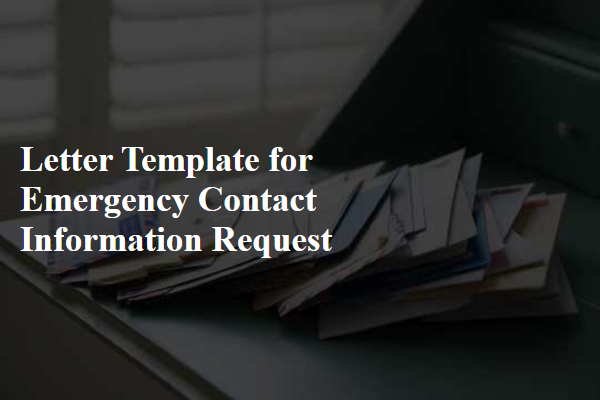
Purpose of Request
During unforeseen circumstances, having updated emergency contact information is crucial for ensuring prompt communication and action. This request encompasses collecting vital details, such as names of individuals who can be reached in case of emergencies, their relationship to the individual (e.g., spouse, parent, or guardian), relevant phone numbers (including mobile and home), and alternative means of communication, such as email addresses. Accurate and accessible emergency contact data can significantly enhance response efficiency during critical situations, ensuring the well-being and safety of individuals in various environments, including workplaces, schools, or healthcare facilities.
Confidentiality Assurance
When individuals provide their emergency contact information, it is essential that organizations maintain strict confidentiality to protect their privacy. Emergency contact details, such as names, phone numbers, and relationships to the individual, are sensitive data that require secure handling and storage. Implementing data protection measures, including encryption and restricted access, ensures only authorized personnel can access this information. Regular audits and training on data privacy laws, like the General Data Protection Regulation (GDPR) or the Health Insurance Portability and Accountability Act (HIPAA), enhance compliance and foster trust. Clear communication regarding how the information will be used, stored, and safeguarded is vital for reassuring individuals about their privacy.
Required Information Details
Emergency contact information includes several critical details. Full name (First and Last) ensures easy identification of the individual. Relationship to the individual (e.g., parent, spouse, friend) provides context for the association. Primary phone number (ideally a mobile number) allows for rapid communication. Secondary phone number offers an alternative in case the primary line is unavailable. Email address serves as an additional means of contact. Address (including city and state) may be necessary for more serious emergencies, enabling quick location of the individual in need. Emergency contacts should be easily accessible and reliable.
Contact Submission Deadline
Emergency contact information is crucial for ensuring safety during unexpected events. Organizations often set a submission deadline, typically a few days before an emergency drill or safety course completion date, to allow for processing. Employees must provide details such as primary contacts' names, phone numbers, and relationship to the individual being documented. This information is stored in a secured database for quick access during emergencies, ensuring that personnel can reach designated contacts swiftly in situations like medical emergencies or natural disasters. Providing accurate and up-to-date information increases the effectiveness of communication during crises.
Contact Update Procedures
Emergency contact information is critical for ensuring safety and effective communication during unforeseen events. Institutions often implement protocols for updating this vital information. Typically, forms are distributed annually or as significant changes occur, ensuring accuracy in the records maintained by the organization. Specific details required may include emergency contact names, relationship to the individual, contact numbers, and alternative communication methods like email or social media handles. Regular reminders, such as emails or newsletters, emphasize the importance of keeping this information current. In emergency situations, having reliable contacts can expedite emergency response and provide peace of mind for individuals and their families.
Letter Template For Emergency Contact Information Request Samples
Letter template of emergency contact information request for medical purposes
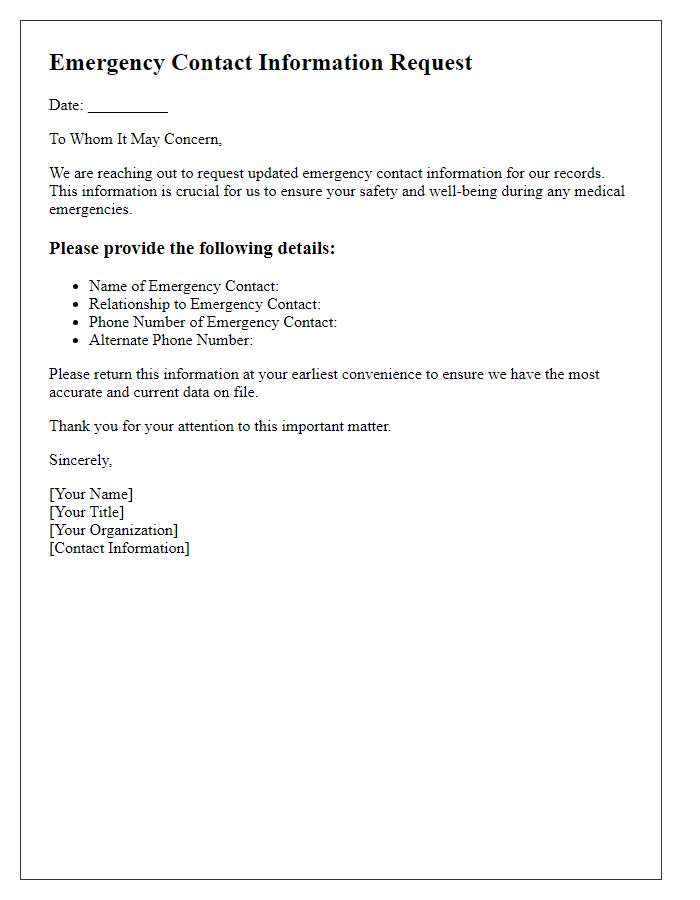
Letter template of emergency contact information request for event attendees
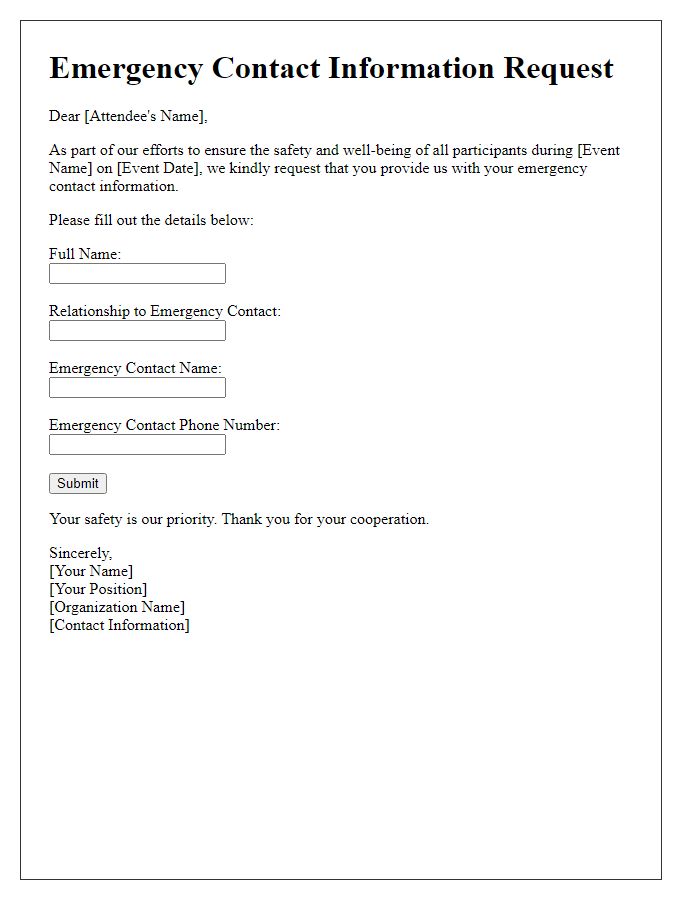
Letter template of emergency contact information request for community members
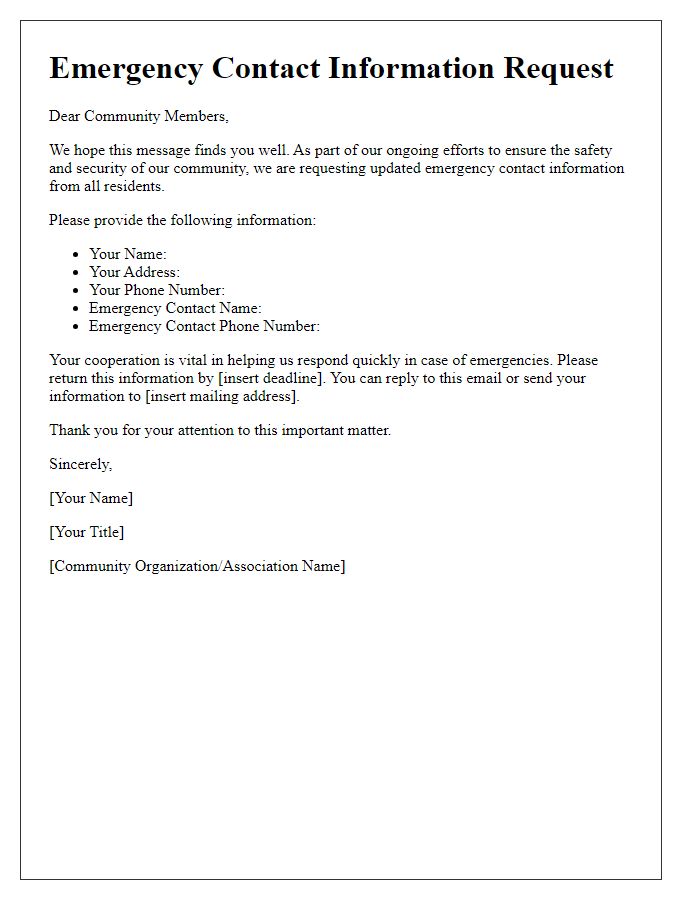
Letter template of emergency contact information request for sports team members
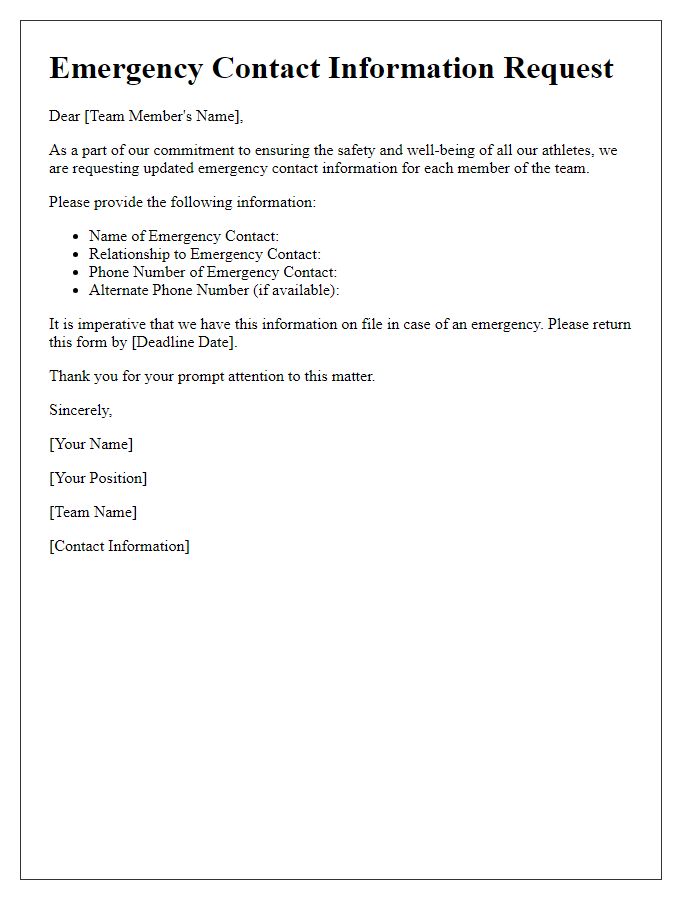
Letter template of emergency contact information request for participants in workshops
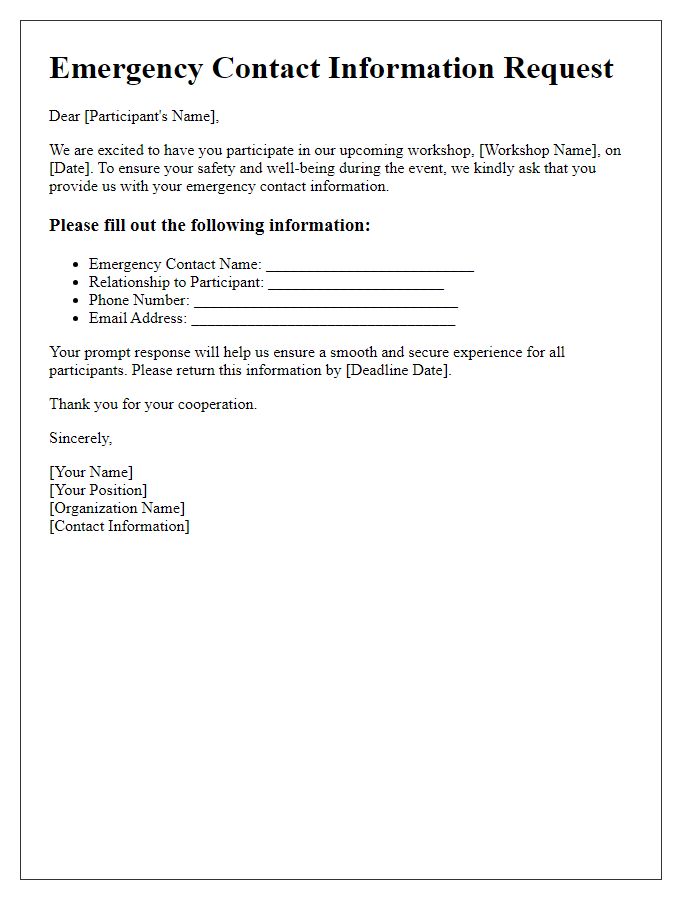
Letter template of emergency contact information request for family members
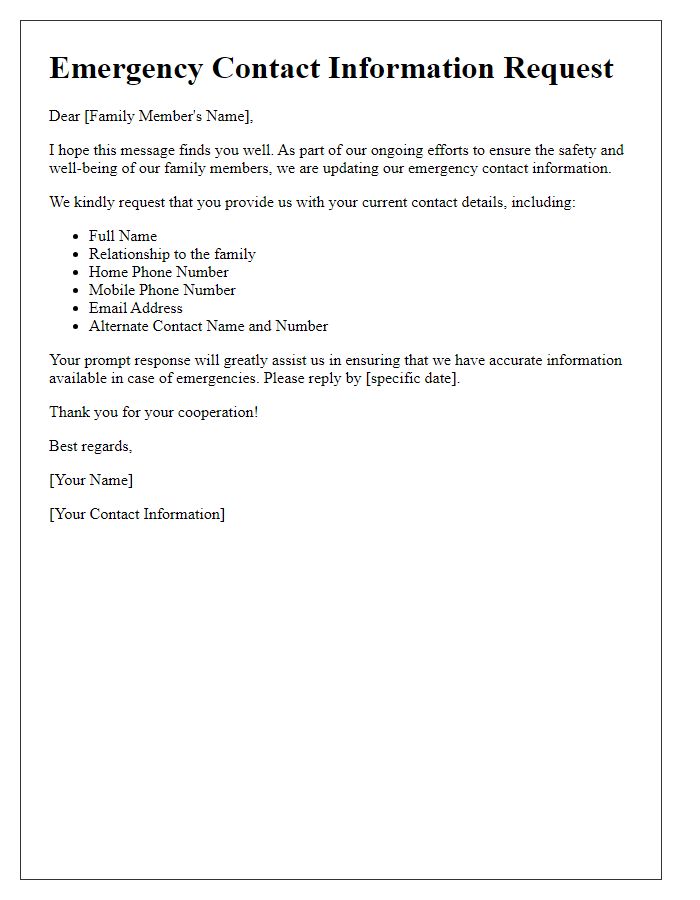

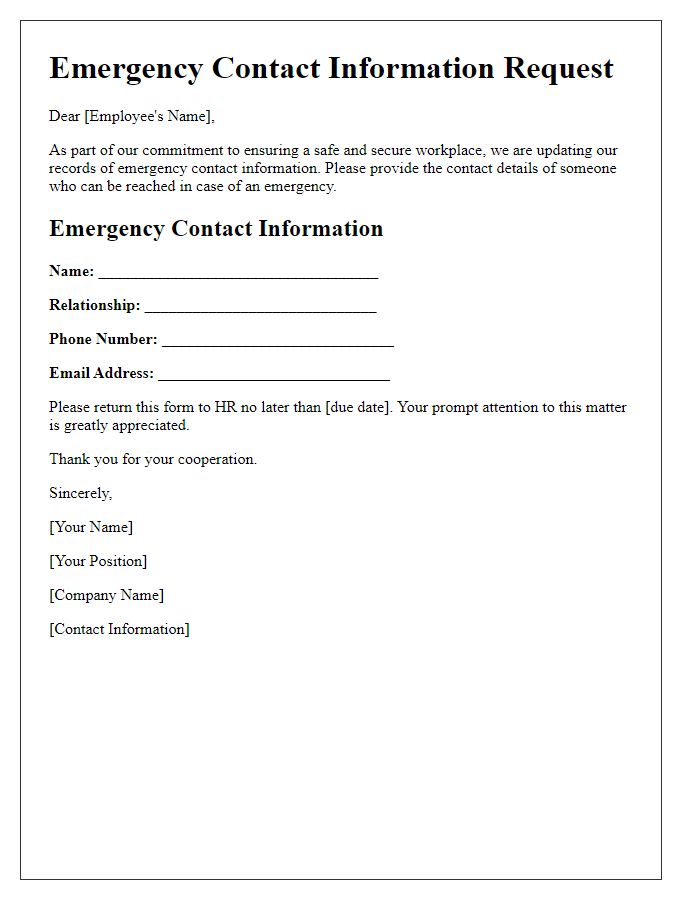
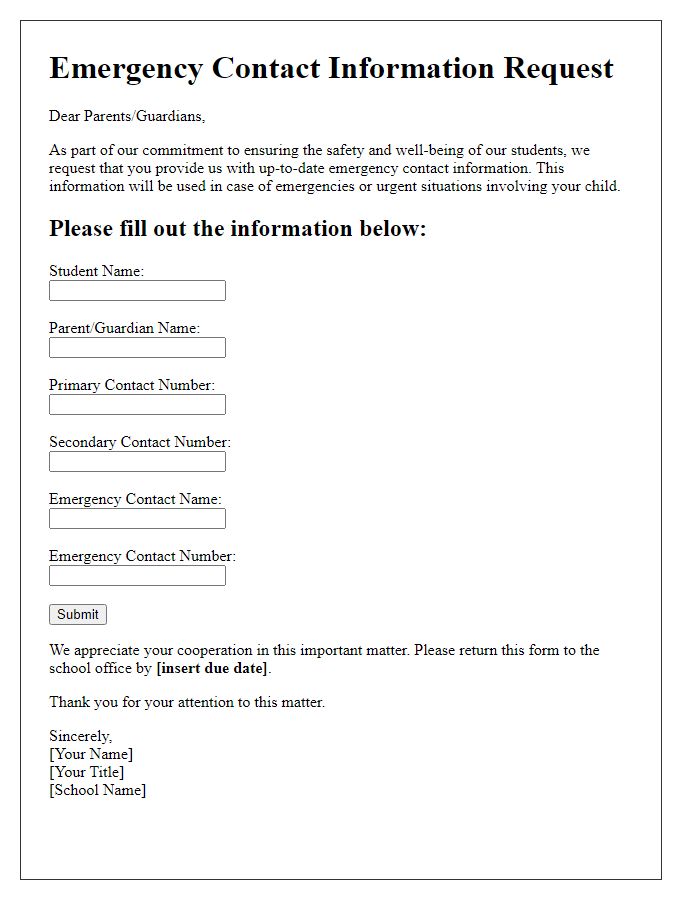
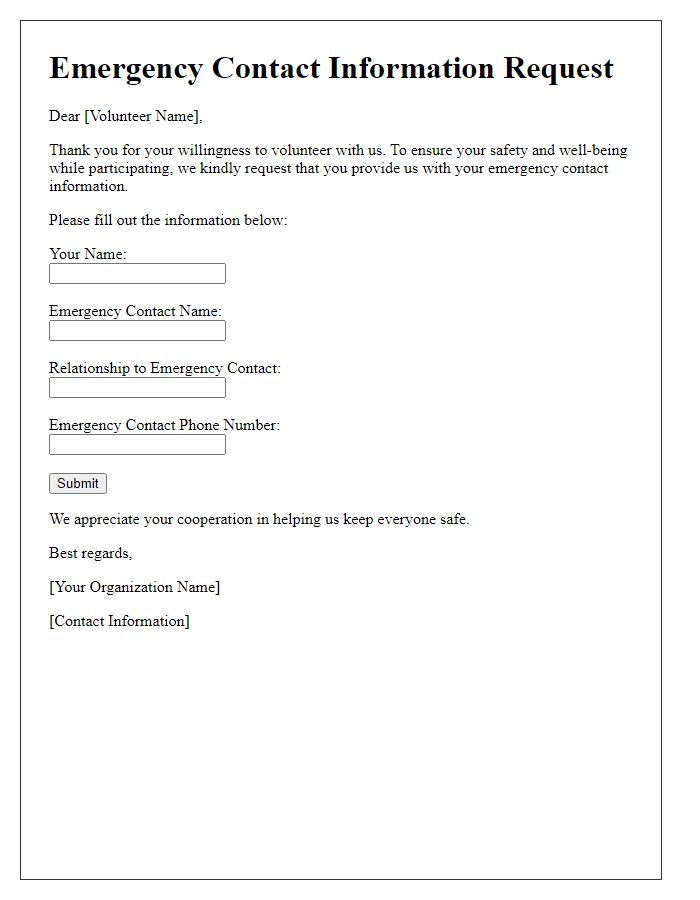
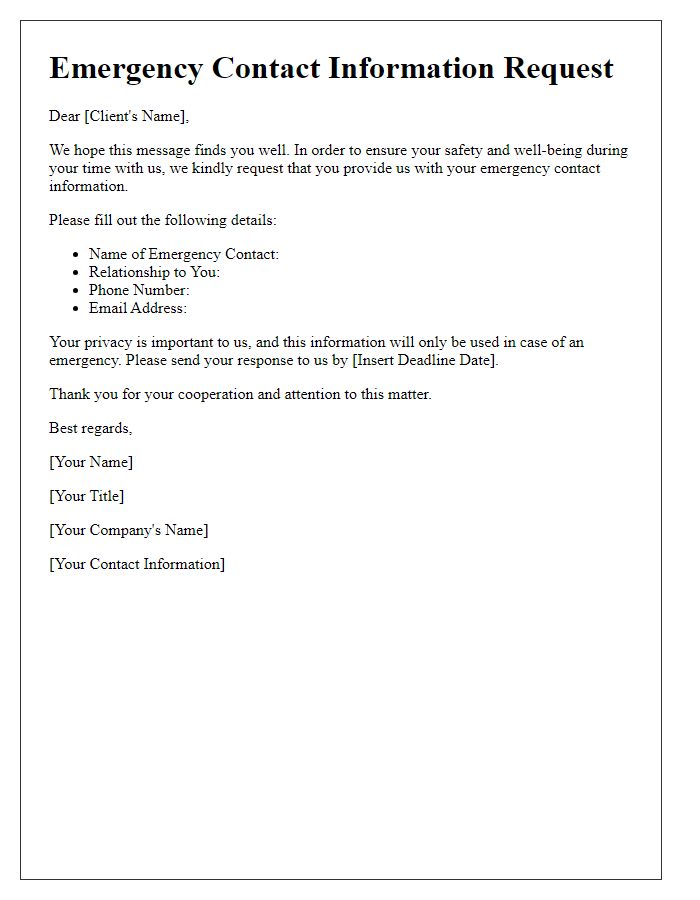


Comments